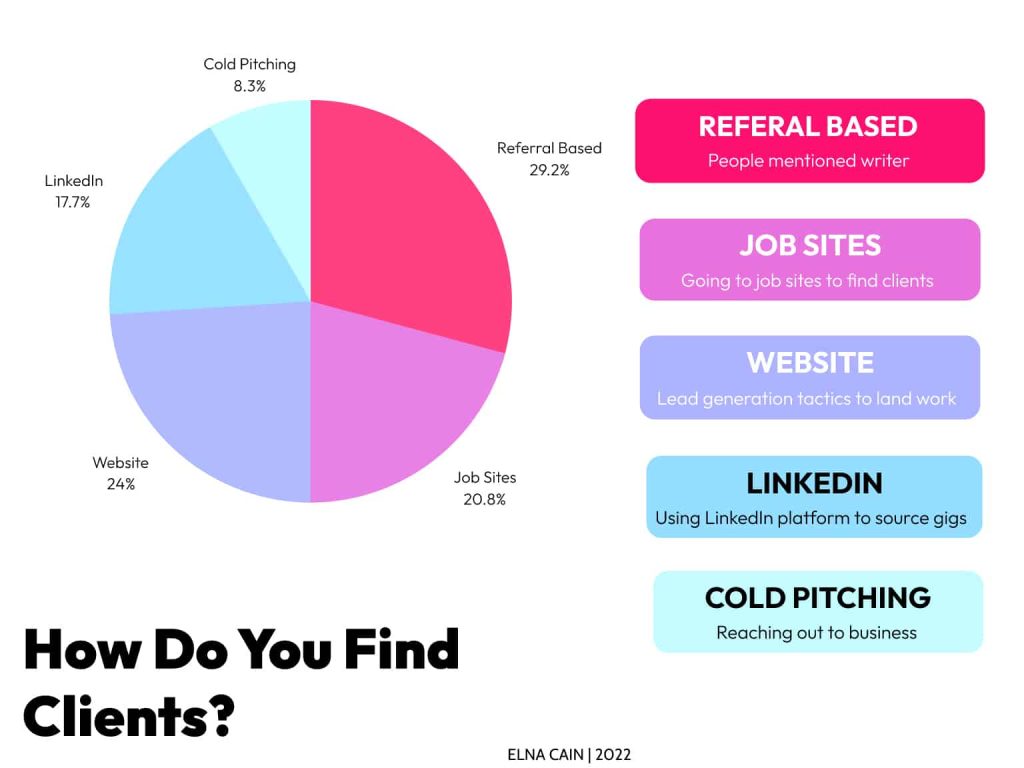Not all journalism grads will work as full-time staff for a news organization. Maybe after searching on JournalismJobs.com and following up with journalism school contacts, you’ll choose to become a freelancer. If you do, you’ll be in good company. About 59 million Americans are freelancing as of 2020. That number has risen since COVID-19 and is projected to rise even more.
Many business writers are represented in that statistic. As freelancers, you can choose your clients, work the hours you want and control your workflow. Some freelancers are becoming digital nomads. Others want to spend more free time at home doing whatever they like to do.
Minding your business
Although well-trained in the craft of business journalism, you might not know how to run a freelance business. Business-y things to get good at include time tracking, invoicing and finding going rates. Join Freelancers Union for free as it offers health benefits and legal and financial resources to its membership that’s 500,000 strong. Invest in Quickbooks or opt for Freshbooks, an accounting software designed for freelancers. Learn how to negotiate contracts. Ilise Benun, speaker, author of seven books and a business coach for thousands of creatives, recommends you think of negotiation as a conversation. She offers tips and even scripts to use. Benun recommends offering tiered-pricing in this podcast. You may also want to confer with an accountant about recordkeeping, taxes and deductions.
Yes, it’s personal
All our business interactions are with fellow humans. Be confident, friendly and patient. That means maintaining respectful communications with your editors and getting to know what they need.
Tech journalist LaVonne Roberts said, “Having worked with Alan Henry, my favorite editor at WIRED, on more than one article, I’ve learned how his time is stretched thin. So I try to make his job easy by sending him research-based, timely pitches on topics that haven’t already been covered in WIRED.”
Be a good citizen of the writing world, too. LaVonne added, “We forget that many editors are writers as well. Alan published a new book, so I pitched book reviews and Q&As I’d conduct with Alan to other publications. Promoting other writers’ work helps build meaningful relationships with people who support your work.”
Your tribe of fellow writers is not your competition. In a 2022 survey of 530 freelance writers and copywriters, 29.2 percent of writers found clients through an editor, another writer, or a past client. The survey was developed by freelance writer and business coach, Elna Cain who was featured in Entrepreneur and Business Insider.
Showing your professionalism
Stay up-to-date on technology and current trends in your profession. Look into joining associations and attending conferences to network with those in your industry. SABEW is the largest association of business journalists. Check out associations for Black, Hispanic, Asian, Native American, and LGBT journalists, too.
Randy Dotinga, a full-time freelance journalist for 23 years, is a former president of the American Society of Journalists & Authors (ASJA). Dotinga reminds writers, “Many journalism associations welcome freelance members and hold annual in-person conferences where you can make crucial connections.” Some even offer sessions on pitching to editors. Dotinga underscored the importance of your peers and said, “Befriend other freelancers. I’ve landed many assignments thanks to pals I met who introduced me to editors and told me about opportunities.”
Many of these top associations also advocate for freelancers. Dotinga added, “For example, on behalf of ASJA, I spearheaded a successful movement to stop a California labor law, Assembly Bill 5, that prevented freelance journalists from working, We convinced the legislature to change the law!”












